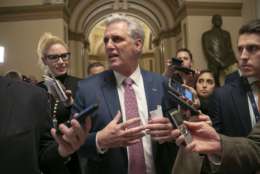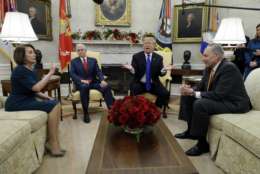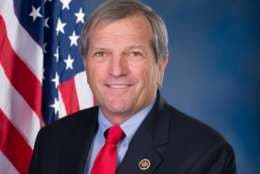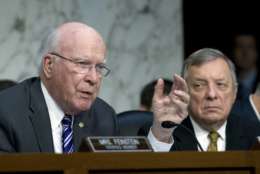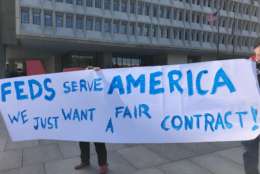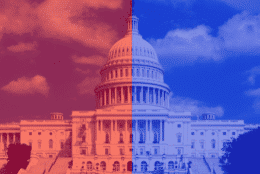Democrats
-
No deal reached to end shutdown as President Trump and congressional leaders meet at the White House
January 02, 2019 -
House Democrats are sweeping into power on a campaign promise of improving government for ordinary Americans
January 02, 2019 -
Bloomberg Government's Loren Duggan joined Federal Drive with Tom Temin to discuss what it could take to end the government shutdown.
December 26, 2018 -
A partial federal shutdown is taking hold after Democrats refused to meet President Donald Trump's demands for $5 billion for his cherished Mexican border wall
December 22, 2018 -
The government shutdown clock is ticking and almost nobody wants one, although the president did say he would be “proud” to do it if Congress doesn’t approve funding for a southern border wall.
December 18, 2018 -
The Defense Department's failure to get a clean financial audit in its first go around has riled some members of Congress.
December 17, 2018 -
In today's Federal Newscast, Senate Democrats said more than 300,000 federal employees will be furloughed if Congress can't come to a deal on seven remaining appropriation bills.
December 13, 2018 -
Could the likelihood of a government shutdown or a coast-to-coast barrier depend on what we the U.S. decide to call it? Some so-called Washington experts think it might work.
December 12, 2018 -
As Democrats prepare to take over the House, persistent issues remain before the hourglass runs out of sand on the current session.
December 11, 2018 -
Federal retirement systems, CSRS and FERS, have been under attack for several years, primarily because a group of House Republicans wanted to make the FERS program less costly to taxpayers and less beneficial to its retirees.
November 23, 2018 -
The metro Washington, D.C. area is now solidly blue and many local members of Congress will be eligible to lead committees that can affect active and retired government employees.
November 13, 2018 -
Federal News Network is tracking which members of the new Democratic House majority are vying for leadership positions that can have a direct impact on federal employees, including Speaker of the House and committee chairmanships.
November 09, 2018 -
Unions representing federal and postal workers may be among the biggest winner in Tuesday’s midterm elections. Most went all out — though not exclusively — for Democratic candidates.
November 09, 2018 -
Come January, Democrats will control the House while Republicans will control the Senate and the White House. So at least two years of divided government are expected.
November 08, 2018 -
Democrats won the House in Tuesday's midterm elections but several Washington, D.C.-area races and seats important to federal workers were more of a mixed bag.
November 07, 2018




